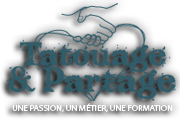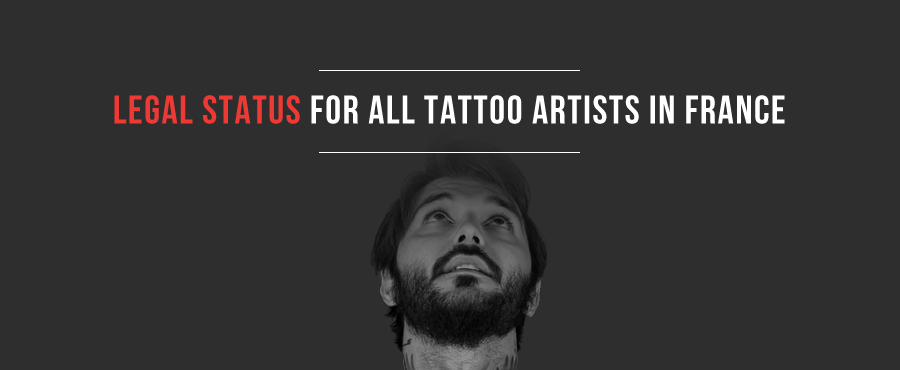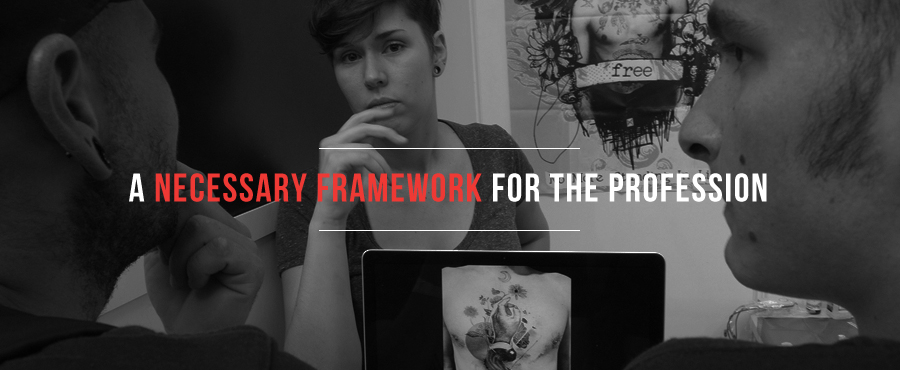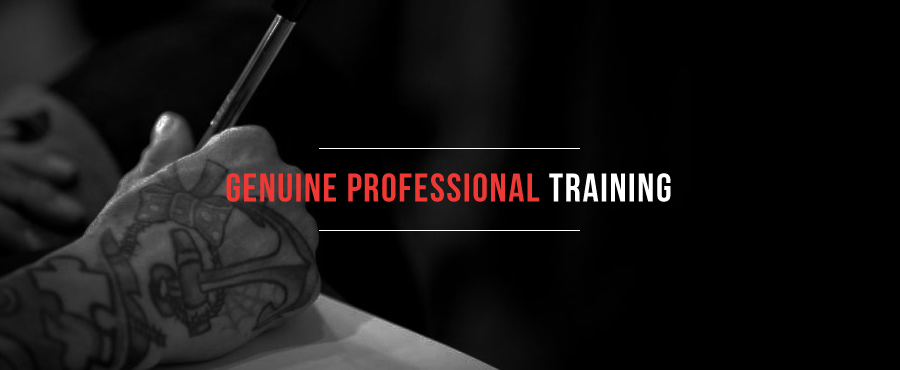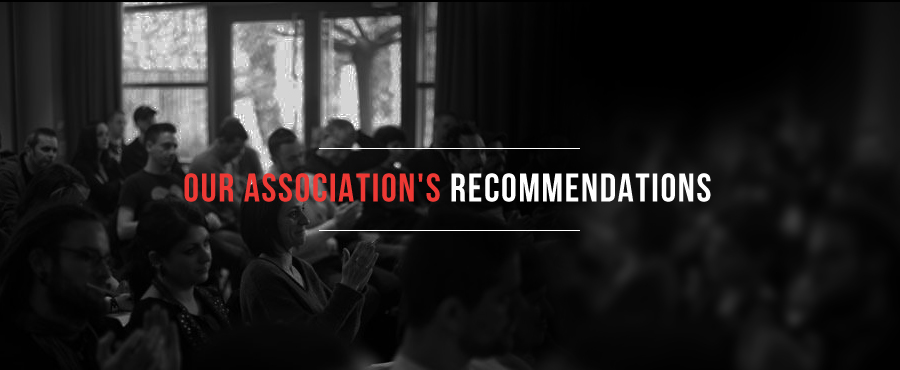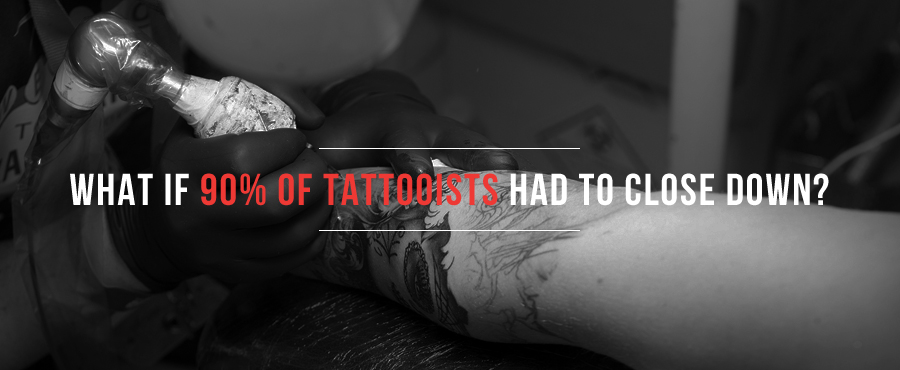
Are beauticians soon to be the only authorised tattooists in France ?
What if the vast majority of tattooists practising in France were at risk? This is what the Tatouage & Partage association will attempt to clarify during their meeting with The Ministry of Social Affairs and Health. The meeting will address new conditions to legally practise as a tattooist in France and the need, now more than ever, to provide tattooists with official legal status. Find out more.
A draft bill was sent to Tatouage & Partage from The Ministry of Health. We at the association were worried about what we read and an increasing number of tattooists in France are worried too. If passed, this draft bill will mean, that in order for tattooists in France to continue practising, they will have to prove that:
- either they have been a practising tattooist since 14 September 1989
- or they have a qualification (technological baccalauréat, professional baccalauréat, professional certificate or aptitude certificate) in the beauty therapy profession.
Our association has made a simple observation: today, 90% of tattooists practising in France are unable to provide proof of either of these. Another factor that seems illogical to us is that beauticians who practise micropigmentation (more commonly known as “permanent make-up”) don’t use the same tools (machines and inks) as tattooists. It would be pointless to consider implementing the same training for these two professions.
After the coloured tattoo ink issue in 2013, where we successfully prevented banning coloured ink in France, this has become a new point of friction on the French tattoo scene. However, we rest assured and hope with all our hearts that the government will listen to all our points during the meeting, thanks to political support from Tatouage & Partage and Michel Jouinot acting as mediator. He is the consultant who supported us during the coloured ink issue.
Is this meeting between the Ministry of Health and Tatouage & Partage to clarify a draft bill that would take away the right to practise from the vast majority of tattooists in France? Yes, but there’s more. The meeting will also address the need, now more than ever, for tattooists in France to have individual and full legal status. It’s coming to the end of 2015 and there have been no further developments in this regard.
A harsh reminder is needed here; the tattooist profession simply has no current legal existence in France. This situation cannot continue – for us, it’s imperative to outline a clear status for French tattooists. To do this, the following must be very clearly outlined in cooperation with the State:
- a legal framework
- a tax system
This lack of clarity affects us every day in our profession. Just look at insurance if you want an example. As our profession doesn’t exist in the eyes of the State, specialised companies do not want to insure tattooists. What is the consequence? It is more and more complicated for tattooists to insure the premises where they work or to insure their public liability.
Tatouage & Partage would like the profession to be optimally monitored by obtaining legal status that would not only mean it could be insured professionally but also:
- able to provide status to spouses working alongside these tattooists
- fully cover apprentices
- have a health framework in which to develop that reassures clients and is easily-implemented by tattooists
The lack of legal status for professional tattooists also means that currently, aspiring tattooists simply cannot receive training that is supervised and validated by a qualification. This clearly stems from lack of compliance, from both ends of the spectrum:
- apprentices that aren’t very conscientious who only attend their tattoo studio every now and then
- studio managers who take on apprentices to do cleaning and other menial tasks rather than really teaching them how to tattoo
The result of this unofficial “apprenticeship” is a dramatic reflection on the aforementioned lack of clarity – with no qualification, there is no way of telling if a tattooist who begins practising is capable or not. This isn’t even taking his artistic capabilities into consideration – here we’re solely and simply referring to an actual risk to public health.
In addition to this non-regulated and, as a result, extremely problematic training method, we can identify three different “training” methods that allow you to practise as a tattooist in France. The first is a 21-hour hygiene training course, a legally mandatory training course for tattooists that is incompatible with their actual needs. Why is it incompatible? It doesn’t validate any professional tattooing knowledge. In other words, all you have to do is prove that you’ve completed this 21-hour course to start working as a tattooist on the market.
The second training method is provided by private schools. With sales objectives in mind and often not in touch with the real tattooing world; these schools claim to teach the tattooing profession, while earning thousands of euros in the space just of 2 or 3 weeks.
The third and by far the most common type, is known in colloquial terms as scratching, otherwise known as an illegal tattooing. The derogatory term, scratcher, is often overly used – these self-taught tattooists by definition, learned the profession at home or outside studios and some prove to be very talented. They are the result of a fault in French tattooing – those that were forced to practise illegally due to the lack of a suitable legal framework.
At Tatouage & Partage, we believe it takes at least two years to acquire all the skills required for tattooing.
Today, our standpoint remains clearer than ever:
- We request that a school or a work/study training course for at least two years be set up. When we say work/study, we mean theoretical modules in class (drawing, dermatology, IT, art history...) combined with practical modules carried out with a professional tattooist.
- We would like true legal status for tattooists in France, based on the artistic artisan status for example.
- We would like equivalent status for the large number of tattooists in France currently practising without a qualification in beauty therapy, and who started practising after 1989.
